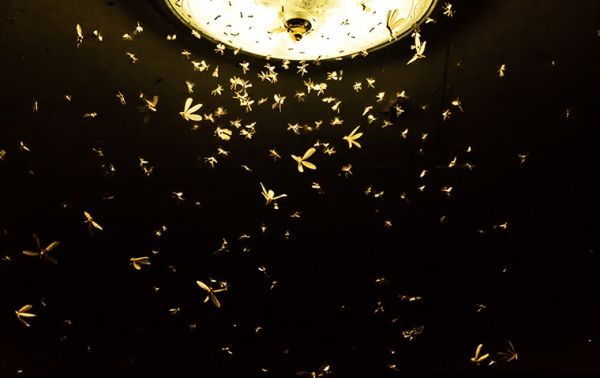Artificial light at night negatively impacts thousands of species: beetles, moths, wasps and other insects that have evolved to use light levels as cues for courtship, foraging and navigation.
Writing in the scientific journal Biological Conservation, Brett Seymoure, the Grossman Family Postdoctoral Fellow of the Living Earth Collaborative at Washington University in St. Louis, and his collaborators reviewed 229 studies to document the myriad ways that light alters the living environment such that insects are unable to carry out crucial biological functions.
“Artificial light at night is human-caused lighting — ranging from streetlights to gas flares from oil extraction,” Seymoure said. “It can affect insects in pretty much every imaginable part of their lives.”
Insects and spiders have experienced global declines in abundance over the past few decades — and it’s only going to get worse. Some researchers have even coined a term for it: the insect apocalypse.
Continue reading at Washington University in St. Louis
Image via Washington University in St. Louis


